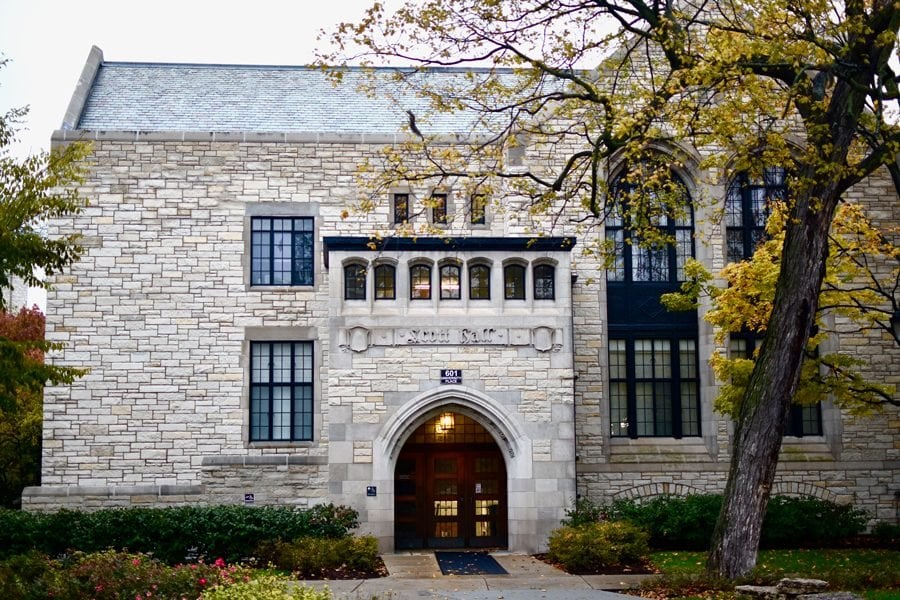Northwestern political scientists call for Trump’s removal
Daily file photo by Brian Meng
Scott Hall, 601 University Pl., home of Northwestern’s Political Science Department. Members of the department, among others, joined other political scientists in calling for President Trump’s removal from office.
January 7, 2021
Six Northwestern political scientists signed a letter calling for President Donald Trump’s removal following the Capitol’s siege by Trump supporters seeking to stop the certification of President-elect Joe Biden’s electoral college victory.
The group included four political science professors, one postdoctoral fellow and one Pritzker School of Law professor, many of whom felt that the attack on democratic norms superseded both personal partisan beliefs and the need to remain nonpartisan as academics.
“While there was an armed assault on the heart of American democracy, then there can be no clearer example of complete incapacity to carry out the duties of president of the United States,” Pritzker Prof. Paul Gowder said. “It’s really that simple.”
The letter was circulated throughout social media and professional networks, amassing over 1,000 signatures by the time of publication.
Alexander Furnas, a postdoctoral fellow in the Kellogg School of Management, said that studying U.S. politics typically requires a degree of objectivity and removal, but the invasion itself went beyond the Constitution and normal politics.
While the attempt itself didn’t surprise him, its success did.
“Heavily armed tactical and National Guard was called in response to protests over justice for Black lives. And then we saw a handful of cops standing around with three-foot tall movable metal barriers,” he said. “I’ve been to the Capitol… I’ve gone through security there, and they go through fairly significant security, like an airport, and it doesn’t seem like they had much more than what they normally do.”
Race also framed the lens through which Prof. Gowder viewed the situation.
“It is not coincidental at all that the rhetoric and propaganda that led to this was focused on predominantly Black voting groups, cities and counties,” he said, drawing comparisons to rhetoric used to oppose Black suffrage during Reconstruction. “We cannot ignore the role of White supremacy in making this ridiculous story about voter fraud that drove this violence.”
Before the protesters became a mob, President Trump told the crowd “we’re going to walk down to the Capitol and we’re going to cheer on our brave senators and Congressmen and women.” On Wednesday evening, he told protesters to “go home with love and in peace” in a tweet, adding that they should “remember this day forever!”
Although it is yet unclear whether President Trump explicitly meant to encourage an invasion of the Capitol, Gowder said it doesn’t matter. In his eyes, either the president encouraged an attack on the highest legislative body in the country, or his lack of a timely response to such an attack disqualified him from being capable of performing the duties of the office under the 25th Amendment.
For political science Prof. Laurel Harbridge-Yong, signing the letter was about holding officials accountable and preventing such attacks from becoming commonplace.
She noted that the Center for Systemic Peace no longer designates the United States as a democracy following the Capitol’s invasion.
“We cannot just ignore them and expect politics as normal to resume and fix things,” she said in an email to the Daily. “That is why I think that cabinet officials and Congress need to consider ways of sanctioning Trump’s behavior. I don’t know the best path forward but simply ignoring the problem does not seem to be an appropriate solution.”
Email: [email protected]
Twitter: @meganmuncie
Related Stories:
— State, local leaders condemn President Trump, rioters in wake of U.S. Capitol breach
— Political Science faculty “dissent” from views expressed in Schapiro email


